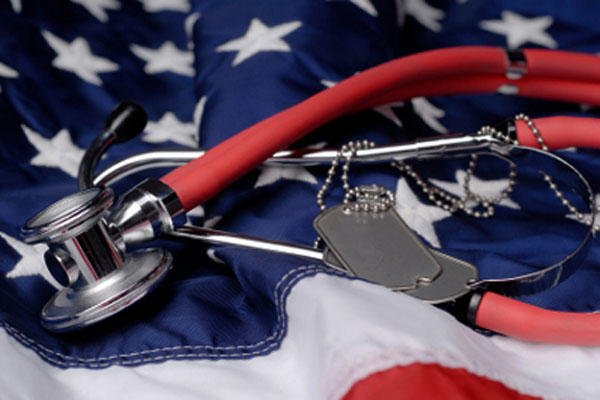 Military Update:Retired Navy Lt. Cmdr. Rodric G. Hammond of Pensacola, Fla., said he was mystified when a blue-ribbon commission on military compensation declared last February that the triple-option TRICARE benefit was "broken."
Military Update:Retired Navy Lt. Cmdr. Rodric G. Hammond of Pensacola, Fla., said he was mystified when a blue-ribbon commission on military compensation declared last February that the triple-option TRICARE benefit was "broken."
It proposed replacing TRICARE for active duty families and retirees under age 65 with a menu of commercial insurance plans, like that offered to federal civilians, except that active duty families would get a new health allowance to cover their premiums at least for mid-price-range plans.
The whole idea left Hammond, 77, and retiree friends asking why.
"I have been using TRICARE Prime for my wife since 1993. I used it personally from that year until I turned 65, and have never had a problem with any aspect of the program," he said. "And TRICARE for Life," the insurance supplement for Medicare-eligible retirees, "is even better. These pols in Washington and in the Department of Defense need to leave it alone."
Congress perhaps heard many such complaints from satisfied beneficiaries because a consensus is building on Capitol Hill that TRICARE need not be scrapped but merely improved, and better integrated with military hospitals and clinics, which are seen as underused and inefficient.
As the Senate and House armed services committees have solicited feedback from health care experts and beneficiary groups, their reform plans for next year appear to be moving away from the Military Compensation and Retirement Modernization Commission recommendations.
But there also has been a difference in tone if not goals between the committee chairmen, Sen. John McCain (R-Ariz.) and Rep. Max Thornberry (R-Texas). McCain wants to see health costs tightened, which could mean higher beneficiary co-pays as defense leaders have urged for years.
"If we do nothing," McCain said at a hearing last week, "the Congressional Budget Office projects that defense health care costs will devour about 11 percent of the defense budget in 2028. This is staggering. Every dollar that the Department of Defense spends on health care is a dollar that can't be spent on training and equipping our war fighters."
McCain did add that the "primary focus of our reform efforts must be to create a better health care system for service members, military families and retirees by improving access to care, quality of care and health outcomes." Those were not, however, the first concerns he raised.
By contrast Thornberry and Rep. Joe Heck (R-Nev.), an Army Reserve physician who chairs the military personnel subcommittee, insist their top reform goal will not be to dampen TRICARE costs or to raise user fees.
"I want to be clear this process is not being driven by budgetary concerns," Heck told beneficiary advocates called to testify on TRICARE reform last Thursday. "We're using the same format that we used in the successful review of the military retirement changes, which [was] not driven by budget but by what will produce the best possible benefit to be able to recruit and retain the best and brightest in our all-volunteer force."
Retired Vice Adm. Norbert Ryan, stepping down as president of Military Officers Association of America after 13 years, described TRICARE strengths and weaknesses from a recent survey of more than 30,000 MOAA members.
More than half of respondents were 65 or older, using TRICARE for Life and well satisfied with the benefit commissioners would leave unchanged.
But 86 percent of those using TRICARE Standard, the fee-for-service option, also were satisfied and 81 percent of enrollees in TRICARE Prime, the managed networks. "We think it's important to preserve what's working, and fix what's not," Ryan said.
The great inefficiency of military health care, Ryan argued, is allowing Army, Navy and Air Force to continue to run separate medical services, allowing for "no single budget or oversight authority."
Other "serious shortcomings," he said, are found in TRICARE Prime appointments and referral services, particularly as managed by base hospitals and clinics, and patient care data showing military doctors see "far fewer patients per week than civilian providers."
Ryan also criticized "a serious disconnect between rhetoric and reality on DoD healthcare costs. Every year, Defense leaders offer dire budget projections of health costs they say are spiraling out of control. But recent history shows those projections have been consistently wrong."
He said defense budgets over the last five years show medical program costs have been flat or even have fallen, and that TRICARE for Life costs are down 40 percent from their peak.
Joyce Wessel Raezer, executive director of the National Military Family Association, testified that "many of our families remain satisfied with TRICARE" based on the care they receive and the low cost.
"Our concern ... centers on what could happen to their care if financial pressures take a greater toll on military hospitals or the TRICARE benefit," she said. Also, many families, particularly those enrolled in Prime at base hospitals and clinics, report difficulty in obtaining timely appointments, bureaucratic hassles to obtain referrals and difficulties in navigating the system, especially when moving from one military community to another.
There are "models of timely access and quality improvement in pockets of the direct care system," she said. "But there doesn't seem to be a single entity with the power to drive implementation of those improvements across the system and hold those in need of improvement accountable."
She called on Congress to enforce access, care quality and customer service standards across the entire health care system. And before base facilities are pressured to improve efficiency by recapturing patients, she said, "military hospitals should be required to certify they are meeting appointment access standards for current patients."
This month former DoD Comptroller Robert Hale testified before McCain's committee in favor of keeping TRICARE, acknowledging that cost growth has slowed. But he said more action is needed because "co-pays are zero, or nearly so, which leads to overuse of care...Also despite some overuse of care there's substantial underutilization of military health care facilities."
To comment, write Military Update, P.O. Box 231111, Centreville, VA, 20120 or email milupdate@aol.com or twitter: @Military_Update
# # # #
Tom Philpott has been breaking news for and about military people since 1977. After service in the Coast Guard, and 17 years as a reporter and senior editor with Army Times Publishing Company, Tom launched "Military Update," his syndicated weekly news column, in 1994. "Military Update" features timely news and analysis on issues affecting active duty members, reservists, retirees and their families.
Visit Tom Philpott's Military Update Archive to view his past articles.
Tom also edits a reader reaction column, "Military Forum." The online "home" for both features is Military.com.
 Tom's freelance articles have appeared in numerous magazines including The New Yorker, Reader's Digest and Washingtonian.
Tom's freelance articles have appeared in numerous magazines including The New Yorker, Reader's Digest and Washingtonian.
His critically-acclaimed book, Glory Denied, on the extraordinary ordeal and heroism of Col. Floyd "Jim" Thompson, the longest-held prisoner of war in American history, is available in hardcover and paperback.




